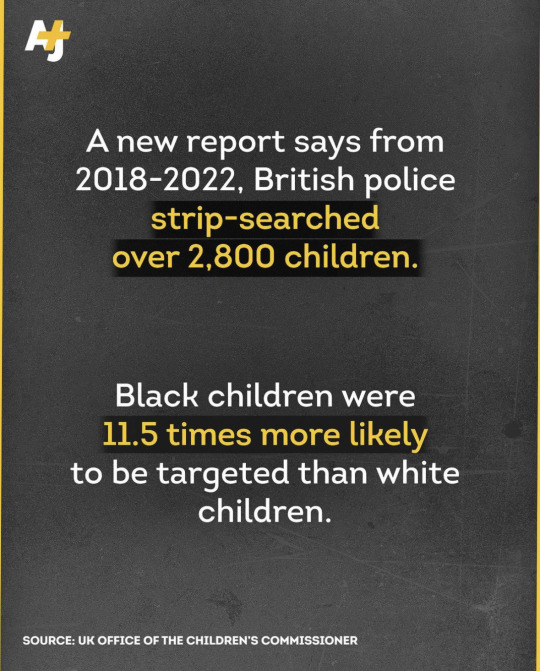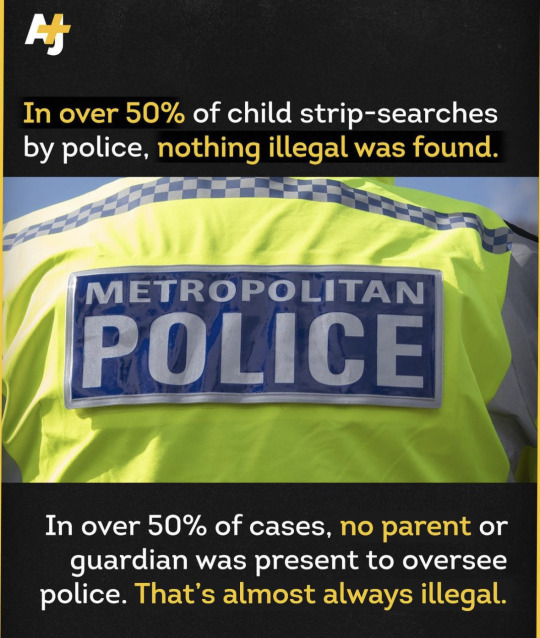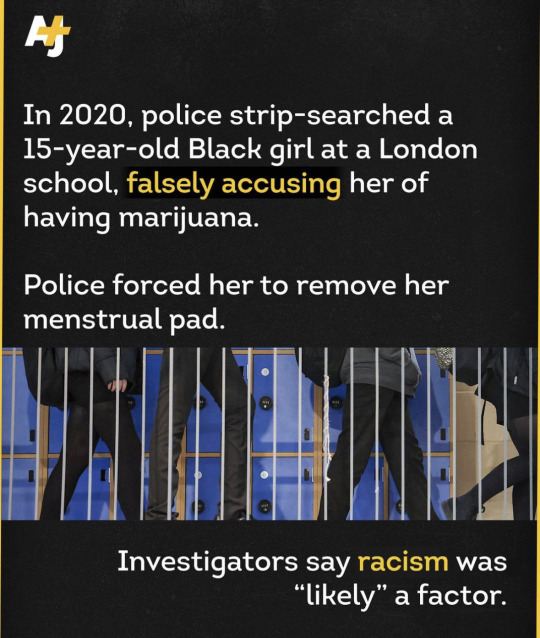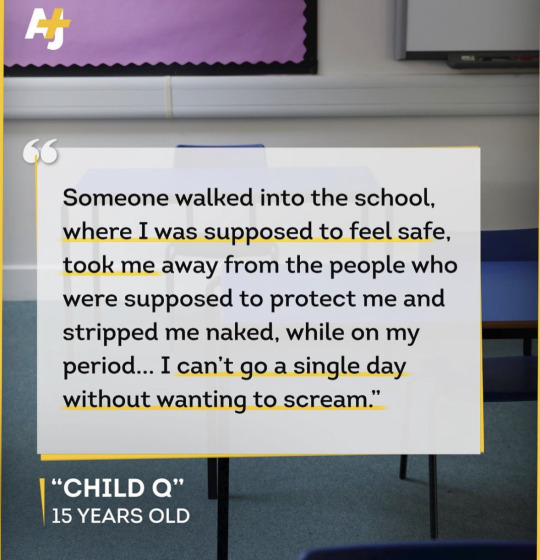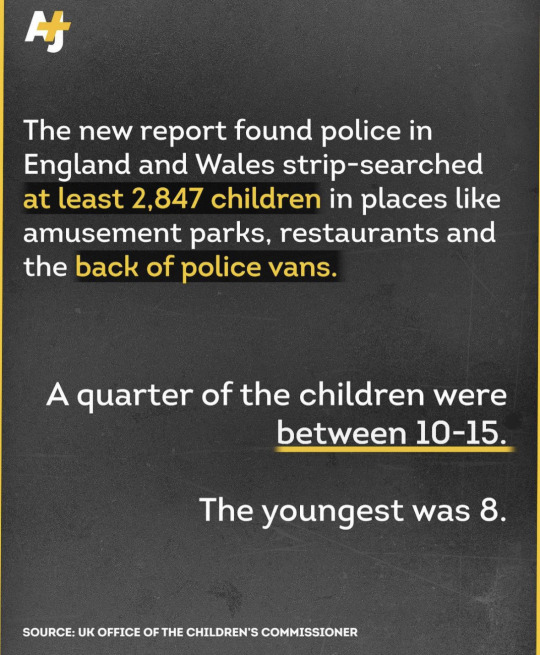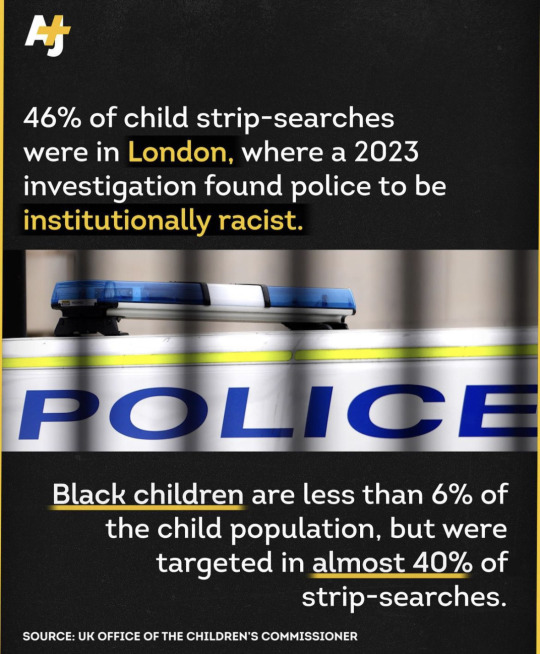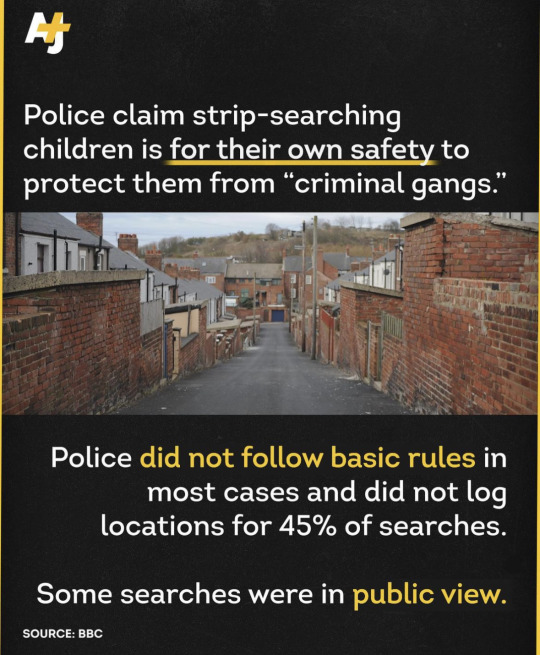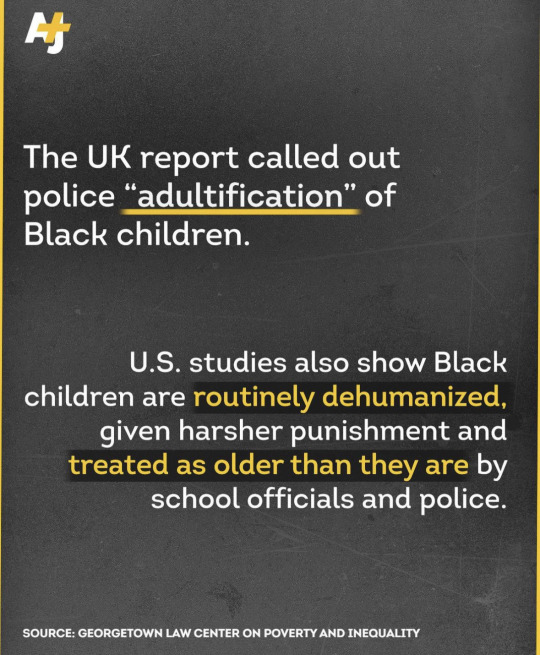#defund the bbc
Video
youtube
ABSOLUTE DISASTER!! Doctor Who/Whom is a Ratings and Audience FAILURE!!
Dr Who: We have a thousand able bodied villains and one disabled.
Leftists: That's Wacist!
Dr Who: Err. Ok, A thousand and one able bodied villains.
Leftists: (*squeals of piggy joy*)
Dr Who: Also, the Doc is told to check his privilege all episode.
Leftists: (*blood orgy results*)
6 notes
·
View notes
Text
So pointing out that the government are actively dehumanising people on your own twitter account isn’t allowed by the bbc if you work for them, but actively dehumanising people during coverage is fine. Funnily enough, I don’t think the bbc is actually too concerned about the concept of neutrality or fairness.
#uk politics#gary lineker#fuck the tories#fuck the bbc#defund the bbc#he didn't even say that much too is the thing#i genuinely scrolled past those tweets the first time because i thought there would at least be a little more#the only time i will support someone from the east midlands /s
25 notes
·
View notes
Text
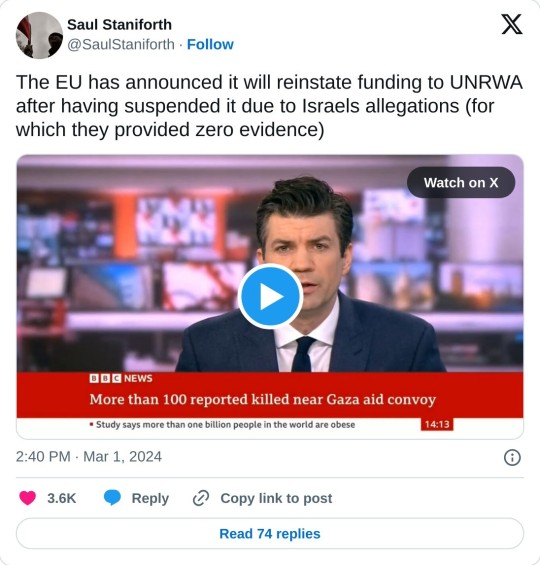
The funds should not have been taken away to begin with. This was and remains a mass collective punishment of Palestinian people -just like the continued abstaining or vetoing of a ceasefire in Gaza by zionist supporting governments at the UN. So many of us knew the IOF was lying. That's what they chronically do to further their settler-colonial agenda, and many countries are complicit in this -especially the US that said they wouldn't be investigating the claims but that it could be 'plausible' but they could not confirm if the IOF was telling the truth.
It's just horrendous how Palestinian people have had to document their own genocide for nearly half a year now -and although we have seen horror after horror, western/european mainsteam mass media sources still blatantly remain silent about everything -they don't give an ounce of coverage to what is actually happening inside Gaza through Palestinian people's and journalists voices and lens'. It's absolutely vile.
#feminist#social justice#free palestine#palestine#free gaza#current events#settler violence#settler colonialism#current news#global news#global politics#politics#end the occupation#ceasefire#ceasefire now#united nations#unrwa#unrwafunding#defund unrwa#bbc news
8K notes
·
View notes
Text
0 notes
Text

This is horrifying.
And a sad reminder that major news broadcasters, especially the BBC, are NOT impartial and they do present a biased view.
The BBC in particular has become increasingly right-wing in recent years.
But creating made up stories to give a flimsy excuse for a military megapower to bomb a hospital! Truly a new low.
This is not journalism. This is aiding a right-wing government commit genocide.
This is unforgivable.
Bombing a hospital is a war crime.
Even Tumblr is prompting me with 'hamas builds secret tunnels under hospital' tag for posts, @staff This is spreading misinformation and the dehumanisation of Palestinians; if everyone is a terrorist then no one is a victim, that is the goal. To dehumanise and ethnically cleanse one entire group of people.
That is a genocide.
We must call for a ceasefire and free Palestine.
#the bbc#gaza under attack#gaza#palestine#hamas#israel#free palestine#end apartheid#defund occupation#israeli occupation#apartheid
256 notes
·
View notes
Text
I do not want to be hearing kyle walker's vacuous helium balloon voice commentary please
4 notes
·
View notes
Text
Updated links part 1 part 2 is up :')
PALESTINE
Help the Palestinian People with a Click | arab.org
https://www.justiceforall.org/ HEY THE ICJ IS ASKING FOR EVIDENCE OF ISRAELS CRIMES AGAINST THE PALESTINIANS VIDEO AND PHOTO SUBMISSIONS ARE ALLOWED
Palestine 101 — the palestine academy Palestinian history to educate your self
Defund Israel (defund-israel.com)
PCRF
Yemanya (p.19) • Salty Licorice (spotify.com) every time u stream this song all funds go to Palestine
Take Action - Defund Israel - Google Docs
FAQ | Decolonize Palestine
wheeeeeeee on Tumblr: wheeeeeeee
Israel-Palestine war: How Israel has tried and failed to divide Palestinians | Middle East Eye
CRISES IN THE MIDDLE EAST (crisesinthemiddleast.carrd.co)
Help Palestinian (helppalestine.carrd.co)
CONGO
abusin' me - song and lyrics by YANAtheartist | Spotify everytime u stream this song all funds go to the people of Congo who are facing a genocide
Raising Consciousness About the Challenge of the Congo - Friends of the Congo
THE EXPLOITATION OF LABOR IN CONGO (google.com)
Congo Action (@congoaction) • Instagram photos and videos
Revive Congo 🇨🇩 (@revivecongo) • Instagram photos and videos
Panzi Hospital and Foundation (@panzifoundation) • Instagram photos and videos
DR Congo - Free the Slaves
wheeeeeeee on Tumblr: wheeeeeeee
Africa Live this week: 30 October-5 November 2023 - BBC News
SUDAN
Keep Eyes On Sudan
Sudan War Monitor | Substack
Sara | BS on blast (@bsonblast) • Instagram photos and videos
Nas Al Sudan (@nasalsudan) • Instagram photos and videos
Project Taghyir (@project.taghyir) • Instagram photos and videos
Yousra Elbagir (@yousraelbagir) • Instagram photos and videos
Sudan crisis: Facts, FAQs, and how to help | World Vision
#SudanSyllabus.docx - Google Docs
wheeeeeeee on Tumblr: List of resources for Sudan and if yall have any pls lmk so I can add them Link to other resources Accounts to follow on insta...
Darfur, Sudan | International Criminal Court (icc-cpi.int)
Videos show African ethnic groups rounded up in Sudan’s Darfur region | CNN
Sudan conflict: Thousands flee fresh ethnic killings in Darfur - BBC News
Five things to know about the crisis in Sudan | UNHCR
SUDAN GENOCIDE EMERGENCY (genocidewatch.com)
YEMEN
Freedom Bakeries (@freedombakeries) • Instagram photos and videos
Islamic Relief Australia - Your Belief In Action: Creating a better World
International Rescue Committee | International Rescue Committee (IRC)
Home - Mona Relief
wheeeeeeee on Tumblr: List of resources for Yemen and if there’s anymore that yall know abt pls lmk so I can add it List of other resources
Yemen crisis | UNICEF
CRISES IN THE MIDDLE EAST (crisesinthemiddleast.carrd.co)
YEMEN & HOW TO HELP (yemencrisis.carrd.co)
Help for Yemen
Yemen: The Largest Humanitarian Crisis (yemenhumancrisis.carrd.co)
SYRIA
wheeeeeeee on Tumblr: This is the list of resources for Syria and if yall have any to add pls lmk and I'll add them here too Here's the link to the...
Human rights in Syria Amnesty International
Syria | Stop Genocide Now
CRISES IN THE MIDDLE EAST (crisesinthemiddleast.carrd.co)
Syria Needs Help
Lebanon
wheeeeeeee on Tumblr: Here's a list of resources for Lebanon and if anyone has any to add plsss lmk so I can add them Link to other resources
Help Lebanon
Lebanon & Ways to Help (lebanoncrisis.carrd.co)
HELP LEBANON (oc-lebanon.carrd.co)
Beirut explosion: 7 ways to help Lebanon victims right now (fastcompany.com)
Women call for rights, lead change in Lebanon protests | Human Rights News | Al Jazeera
IRAN
when on Tumblr: Here are some resources for Iran and if anyone has any other ones pls lmk so I can add it Here are other resources
Iran | Country Page | World | Human Rights Watch (hrw.org)
MOROCCO
wheeeeeeee on Tumblr: Here’s a list of resources for what’s happening in Morocco and if yall have any more pls lmk so I can add them Link to other...
The World’s Platform for Change · Change.org
WESTERN SAHARA
wheeeeeeee on Tumblr: Here are some resources abt Western Sahara 🇪🇭 and if anyone else has any more resources pls lmk so I can add them here Link to...
ARMENIA
wheeeeeeee on Tumblr: Here’s a list of resources for Armenia and if anyone has any other ones pls lmk so I can add them List of other resources
‘Genocide is happening before our eyes’: Armenian Americans push for US action against Azerbaijan | California | The Guardian
Nagorno-Karabakh Conflict | Global Conflict Tracker (cfr.org)
Help the Armenian Community (helparmenians.carrd.co)
Behind the Flare-Up Along Armenia-Azerbaijan Border - Carnegie Endowment for International Peace
AFGHANISTAN
wheeeeeeee on Tumblr: Here’s a list of resources for Afghanistan and if anyone has any more pls lmk so I can add them List of other resources There...
The Islamic Republic of Afghanistan (genocidewatch.com)
CRISES IN THE MIDDLE EAST (crisesinthemiddleast.carrd.co)
help afghanistan.
TIGRAY
Tigray Conflict | Human Rights Watch (hrw.org)
Ethiopia’s Invisible Ethnic Cleansing | Human Rights Watch (hrw.org)
Ethiopia (genocidewatch.com)
KURDISTAN
A forgotten genocide: 100 years of solitude for the Kurds (cfri-irak.com)
Conflict Watchlist 2023: Kurdish Regions (acleddata.com)
HAITI
80 Years On, Dominicans And Haitians Revisit Painful Memories Of Parsley Massacre : Parallels : NPR
Haiti | genocidewatch
Mission of Hope on X: "NO MORE | An Urgent Update on Haiti. #prayforHaiti THREAD: https://t.co/K7w4Gpj3D0" / X (twitter.com)
UYGHURS
Who are the Uyghurs and why is China being accused of genocide? - BBC News
How One Uyghur Woman Escaped a Chinese Internment Camp (businessinsider.com)
China (genocidewatch.com)
Stand With Uyghurs (hearuyghurs.carrd.co)
Save The Uighurs
Help The Uyghurs
KASHMIR
As Kashmir’s Hindus face targeted killings, hundreds flee valley | Conflict News | Al Jazeera
Call the crime in Kashmir by its name: Ongoing genocide (theconversation.com)
Free Kashmir (howtohelpkashmir.carrd.co)
CAMEROON
Policy Brief: Risk of Mass Atrocities in Cameroon - United States Holocaust Memorial Museum (ushmm.org)
WEST PAUPA
Country Report: West Papua (genocidewatch.com)
‘The kids had all been tortured’: Indonesian military accused of targeting children in West Papua | Papua New Guinea | The Guardian
Why Indonesia fails to address the West Papua conflict | Human Rights | Al Jazeera
West Papua: The Genocide That Is Being Ignored by The World (thelastamericanvagabond.com)
Human Rights - Free West Papua Campaign
BURMA/MYANMAR
Burma Genocide - United States Department of State
NIGERIA
Conflict Watchlist 2023: Nigeria (acleddata.com)
LINK TO PART 2
#free palestine#palestine#gaza#free gaza#gaza genocide#ceasefire#israel#endisraelsgenocide#gaza strip#end israel's genocide#current events#palestinian genocide#support palestine#save palestine#occupied palestine#i stand with palestine#free free palestine#genocide in palestine#we stand with palestine#palestine will be free#palestine genocide#save gaza#gazaunderattack#gaza under genocide#gaza under attack#genocide in gaza#ceasefire now#west bank#free congo#congo genocide
1K notes
·
View notes
Text
How to shatter the class solidarity of the ruling class

I'm touring my new, nationally bestselling novel The Bezzle! Catch me WEDNESDAY (Apr 11) at UCLA, then Chicago (Apr 17), Torino (Apr 21) Marin County (Apr 27), Winnipeg (May 2), Calgary (May 3), Vancouver (May 4), and beyond!

Audre Lorde counsels us that "The Master's Tools Will Never Dismantle the Master's House," while MLK said "the law cannot make a man love me, but it can restrain him from lynching me." Somewhere between replacing the system and using the system lies a pragmatic – if easily derailed – course.
Lorde is telling us that a rotten system can't be redeemed by using its own chosen reform mechanisms. King's telling us that unless we live, we can't fight – so anything within the system that makes it easier for your comrades to fight on can hasten the end of the system.
Take the problems of journalism. One old model of journalism funding involved wealthy newspaper families profiting handsomely by selling local appliance store owners the right to reach the townspeople who wanted to read sports-scores. These families expressed their patrician love of their town by peeling off some of those profits to pay reporters to sit through municipal council meetings or even travel overseas and get shot at.
In retrospect, this wasn't ever going to be a stable arrangement. It relied on both the inconstant generosity of newspaper barons and the absence of a superior way to show washing-machine ads to people who might want to buy washing machines. Neither of these were good long-term bets. Not only were newspaper barons easily distracted from their sense of patrician duty (especially when their own power was called into question), but there were lots of better ways to connect buyers and sellers lurking in potentia.
All of this was grossly exacerbated by tech monopolies. Tech barons aren't smarter or more evil than newspaper barons, but they have better tools, and so now they take 51 cents out of every ad dollar and 30 cents out of ever subscriber dollar and they refuse to deliver the news to users who explicitly requested it, unless the news company pays them a bribe to "boost" their posts:
https://www.eff.org/deeplinks/2023/04/saving-news-big-tech
The news is important, and people sign up to make, digest, and discuss the news for many non-economic reasons, which means that the news continues to struggle along, despite all the economic impediments and the vulture capitalists and tech monopolists who fight one another for which one will get to take the biggest bite out of the press. We've got outstanding nonprofit news outlets like Propublica, journalist-owned outlets like 404 Media, and crowdfunded reporters like Molly White (and winner-take-all outlets like the New York Times).
But as Hamilton Nolan points out, "that pot of money…is only large enough to produce a small fraction of the journalism that was being produced in past generations":
https://www.hamiltonnolan.com/p/what-will-replace-advertising-revenue
For Nolan, "public funding of journalism is the only way to fix this…If we accept that journalism is not just a business or a form of entertainment but a public good, then funding it with public money makes perfect sense":
https://www.hamiltonnolan.com/p/public-funding-of-journalism-is-the
Having grown up in Canada – under the CBC – and then lived for a quarter of my life in the UK – under the BBC – I am very enthusiastic about Nolan's solution. There are obvious problems with publicly funded journalism, like the politicization of news coverage:
https://www.theguardian.com/media/2023/jan/24/panel-approving-richard-sharp-as-bbc-chair-included-tory-party-donor
And the transformation of the funding into a cheap political football:
https://www.cbc.ca/news/politics/poilievre-defund-cbc-change-law-1.6810434
But the worst version of those problems is still better than the best version of the private-equity-funded model of news production.
But Nolan notes the emergence of a new form of hedge fund news, one that is awfully promising, and also terribly fraught: Hunterbrook Media, an investigative news outlet owned by short-sellers who pay journalists to research and publish damning reports on companies they hold a short position on:
https://hntrbrk.com/
For those of you who are blissfully distant from the machinations of the financial markets, "short selling" is a wager that a company's stock price will go down. A gambler who takes a short position on a company's stock can make a lot of money if the company stumbles or fails altogether (but if the company does well, the short can suffer literally unlimited losses).
Shorts have historically paid analysts to dig into companies and uncover the sins hidden on their balance-sheets, but as Matt Levine points out, journalists work for a fraction of the price of analysts and are at least as good at uncovering dirt as MBAs are:
https://www.bloomberg.com/opinion/articles/2024-04-02/a-hedge-fund-that-s-also-a-newspaper
What's more, shorts who discover dirt on a company still need to convince journalists to publicize their findings and trigger the sell-off that makes their short position pay off. Shorts who own a muckraking journalistic operation can skip this step: they are the journalists.
There's a way in which this is sheer genius. Well-funded shorts who don't care about the news per se can still be motivated into funding freely available, high-quality investigative journalism about corporate malfeasance (notoriously, one of the least attractive forms of journalism for advertisers). They can pay journalists top dollar – even bid against each other for the most talented journalists – and supply them with all the tools they need to ply their trade. A short won't ever try the kind of bullshit the owners of Vice pulled, paying themselves millions while their journalists lose access to Lexisnexis or the PACER database:
https://pluralistic.net/2024/02/24/anti-posse/#when-you-absolutely-positively-dont-give-a-solitary-single-fuck
The shorts whose journalists are best equipped stand to make the most money. What's not to like?
Well, the issue here is whether the ruling class's sense of solidarity is stronger than its greed. The wealthy have historically oscillated between real solidarity (think of the ultrawealthy lobbying to support bipartisan votes for tax cuts and bailouts) and "war of all against all" (as when wealthy colonizers dragged their countries into WWI after the supply of countries to steal ran out).
After all, the reason companies engage in the scams that shorts reveal is that they are profitable. "Behind every great fortune is a great crime," and that's just great. You don't win the game when you get into heaven, you win it when you get into the Forbes Rich List.
Take monopolies: investors like the upside of backing an upstart company that gobbles up some staid industry's margins – Amazon vs publishing, say, or Uber vs taxis. But while there's a lot of upside in that move, there's also a lot of risk: most companies that set out to "disrupt" an industry sink, taking their investors' capital down with them.
Contrast that with monopolies: backing a company that merges with its rivals and buys every small company that might someday grow large is a sure thing. Shriven of "wasteful competition," a company can lower quality, raise prices, capture its regulators, screw its workers and suppliers and laugh all the way to Davos. A big enough company can ignore the complaints of those workers, customers and regulators. They're not just too big to fail. They're not just too big to jail. They're too big to care:
https://pluralistic.net/2024/04/04/teach-me-how-to-shruggie/#kagi
Would-be monopolists are stuck in a high-stakes Prisoner's Dilemma. If they cooperate, they can screw over everyone else and get unimaginably rich. But if one party defects, they can raid the monopolist's margins, short its stock, and snitch to its regulators.
It's true that there's a clear incentive for hedge-fund managers to fund investigative journalism into other hedge-fund managers' portfolio companies. But it would be even more profitable for both of those hedgies to join forces and collude to screw the rest of us over. So long as they mistrust each other, we might see some benefit from that adversarial relationship. But the point of the 0.1% is that there aren't very many of them. The Aspen Institute can rent a hall that will hold an appreciable fraction of that crowd. They buy their private jets and bespoke suits and powdered rhino horn from the same exclusive sellers. Their kids go to the same elite schools. They know each other, and they have every opportunity to get drunk together at a charity ball or a society wedding and cook up a plan to join forces.
This is the problem at the core of "mechanism design" grounded in "rational self-interest." If you try to create a system where people do the right thing because they're selfish assholes, you normalize being a selfish asshole. Eventually, the selfish assholes form a cozy little League of Selfish Assholes and turn on the rest of us.
Appeals to morality don't work on unethical people, but appeals to immorality crowds out ethics. Take the ancient split between "free software" (software that is designed to maximize the freedom of the people who use it) and "open source software" (identical to free software, but promoted as a better way to make robust code through transparency and peer review).
Over the years, open source – an appeal to your own selfish need for better code – triumphed over free software, and its appeal to the ethics of a world of "software freedom." But it turns out that while the difference between "open" and "free" was once mere semantics, it's fully possible to decouple the two. Today, we have lots of "open source": you can see the code that Google, Microsoft, Apple and Facebook uses, and even contribute your labor to it for free. But you can't actually decide how the software you write works, because it all takes a loop through Google, Microsoft, Apple or Facebook's servers, and only those trillion-dollar tech monopolists have the software freedom to determine how those servers work:
https://pluralistic.net/2020/05/04/which-side-are-you-on/#tivoization-and-beyond
That's ruling class solidarity. The Big Tech firms have hidden a myriad of sins beneath their bafflegab and balance-sheets. These (as yet) undiscovered scams constitute a "bezzle," which JK Galbraith defined as "the magic interval when a confidence trickster knows he has the money he has appropriated but the victim does not yet understand that he has lost it."
The purpose of Hunterbrook is to discover and destroy bezzles, hastening the moment of realization that the wealth we all feel in a world of seemingly orderly technology is really an illusion. Hunterbrook certainly has its pick of bezzles to choose from, because we are living in a Golden Age of the Bezzle.
Which is why I titled my new novel The Bezzle. It's a tale of high-tech finance scams, starring my two-fisted forensic accountant Marty Hench, and in this volume, Hench is called upon to unwind a predatory prison-tech scam that victimizes the most vulnerable people in America – our army of prisoners – and their families:
https://us.macmillan.com/books/9781250865878/thebezzle
The scheme I fictionalize in The Bezzle is very real. Prison-tech monopolists like Securus and Viapath bribe prison officials to abolish calls, in-person visits, mail and parcels, then they supply prisoners with "free" tablets where they pay hugely inflated rates to receive mail, speak to their families, and access ebooks, distance education and other electronic media:
https://pluralistic.net/2024/04/02/captive-customers/#guillotine-watch
But a group of activists have cornered these high-tech predators, run them to ground and driven them to the brink of extinction, and they've done it using "the master's tools" – with appeals to regulators and the finance sector itself.
Writing for The Appeal, Dana Floberg and Morgan Duckett describe the campaign they waged with Worth Rises to bankrupt the prison-tech sector:
https://theappeal.org/securus-bankruptcy-prison-telecom-industry/
Here's the headline figure: Securus is $1.8 billion in debt, and it has eight months to find a financier or it will go bust. What's more, all the creditors it might reasonably approach have rejected its overtures, and its bonds have been downrated to junk status. It's a dead duck.
Even better is how this happened. Securus's debt problems started with its acquisition, a leveraged buyout by Platinum Equity, who borrowed heavily against the firm and then looted it with bogus "management fees" that meant that the debt continued to grow, despite Securus's $700m in annual revenue from America's prisoners. Platinum was just the last in a long line of PE companies that loaded up Securus with debt and merged it with its competitors, who were also mortgaged to make profits for other private equity funds.
For years, Securus and Platinum were able to service their debt and roll it over when it came due. But after Worth Rises got NYC to pass a law making jail calls free, creditors started to back away from Securus. It's one thing for Securus to charge $18 for a local call from a prison when it's splitting the money with the city jail system. But when that $18 needs to be paid by the city, they're going to demand much lower prices. To make things worse for Securus, prison reformers got similar laws passed in San Francisco and in Connecticut.
Securus tried to outrun its problems by gobbling up one of its major rivals, Icsolutions, but Worth Rises and its coalition convinced regulators at the FCC to block the merger. Securus abandoned the deal:
https://worthrises.org/blogpost/securusmerger
Then, Worth Rises targeted Platinum Equity, going after the pension funds and other investors whose capital Platinum used to keep Securus going. The massive negative press campaign led to eight-figure disinvestments:
https://www.latimes.com/business/story/2019-09-05/la-fi-tom-gores-securus-prison-phone-mass-incarceration
Now, Securus's debt became "distressed," trading at $0.47 on the dollar. A brief, covid-fueled reprieve gave Securus a temporary lifeline, as prisoners' families were barred from in-person visits and had to pay Securus's rates to talk to their incarcerated loved ones. But after lockdown, Securus's troubles picked up right where they left off.
They targeted Platinum's founder, Tom Gores, who papered over his bloody fortune by styling himself as a philanthropist and sports-team owner. After a campaign by Worth Rises and Color of Change, Gores was kicked off the Los Angeles County Museum of Art board. When Gores tried to flip Securus to a SPAC – the same scam Trump pulled with Truth Social – the negative publicity about Securus's unsound morals and financials killed the deal:
https://twitter.com/WorthRises/status/1578034977828384769
Meanwhile, more states and cities are making prisoners' communications free, further worsening Securus's finances:
https://pluralistic.net/2024/02/14/minnesota-nice/#shitty-technology-adoption-curve
Congress passed the Martha Wright-Reed Just and Reasonable Communications Act, giving the FCC the power to regulate the price of federal prisoners' communications. Securus's debt prices tumbled further:
https://www.govtrack.us/congress/bills/117/s1541
Securus's debts were coming due: it owes $1.3b in 2024, and hundreds of millions more in 2025. Platinum has promised a $400m cash infusion, but that didn't sway S&P Global, a bond-rating agency that re-rated Securus's bonds as "CCC" (compare with "AAA"). Moody's concurred. Now, Securus is stuck selling junk-bonds:
https://www.govtrack.us/congress/bills/117/s1541
The company's creditors have given Securus an eight-month runway to find a new lender before they force it into bankruptcy. The company's debt is trading at $0.08 on the dollar.
Securus's major competitor is Viapath (prison tech is a duopoly). Viapath is also debt-burdened and desperate, thanks to a parallel campaign by Worth Rises, and has tried all of Securus's tricks, and failed:
https://pestakeholder.org/news/american-securities-fails-to-sell-prison-telecom-company-viapath/
Viapath's debts are due next year, and if Securus tanks, no one in their right mind will give Viapath a dime. They're the walking dead.
Worth Rise's brilliant guerrilla warfare against prison-tech and its private equity backers are a master class in using the master's tools to dismantle the master's house. The finance sector isn't a friend of justice or working people, but sometimes it can be used tactically against financialization itself. To paraphrase MLK, "finance can't make a corporation love you, but it can stop a corporation from destroying you."
Yes, the ruling class finds solidarity at the most unexpected moments, and yes, it's easy for appeals to greed to institutionalize greediness. But whether it's funding unbezzling journalism through short selling, or freeing prisons by brandishing their cooked balance-sheets in the faces of bond-rating agencies, there's a lot of good we can do on the way to dismantling the system.

If you'd like an essay-formatted version of this post to read or share, here's a link to it on pluralistic.net, my surveillance-free, ad-free, tracker-free blog:
https://pluralistic.net/2024/04/08/money-talks/#bullshit-walks

Image:
KMJ (modified)
https://commons.wikimedia.org/wiki/File:Boerse_01_KMJ.jpg
CC BY-SA 3.0
https://creativecommons.org/licenses/by-sa/3.0/deed.en
#pluralistic#shorts#short sellers#news#private equity#private prisons#securus#prison profiteers#the bezzle#anything that cant go on forever eventually stop#steins law#hamilton nolan#Platinum Equity#American Securities#viapath#global tellink#debt#jpay#worth rises#insurance#spacs#fcc#bond rating#moodys#the appeal#saving the news from big tech#hunterbrook media#journalism
796 notes
·
View notes
Text
Federal NDP Leader Jagmeet Singh says Pierre Poilievre’s criticisms of the CBC amount to an attack on Canadian culture by the Conservative leader — and Quebec and francophone culture, in particular.
Singh addressed the issue, speaking in French, after Twitter added a label to CBC’s main account on Sunday indicating the broadcaster was “government-funded media.”
That move prompted the corporation to announce Monday it was hitting pause on its use of the social-media platform, which described the BBC the same way before changing its own label to “publicly funded media.”
Full article
Tagging: @politicsofcanada
#cdnpoli#canadian politics#canadian news#canadian#canada#pierre poilievre#cbc#radio-canada#media#journalism#government funded media#publicly funded media
30 notes
·
View notes
Text
Policing in Russia has not exactly been great – and it's getting worse.
Russia has one of the largest police forces in the world, employing over 900,000 officers to serve a population of 146 million, according to the Russian Ministry of Internal Affairs. It has nearly 630 officers per 100,000 people - more than double the US or the UK.
But in August, Interior Ministry Chief Vladimir Kolokoltsev said the country had a "critical" shortage of police officers, which could affect crime rates.
How can that be the case, given the sheer number of officers?
In real terms, Putin has defunded the police. You get what you pay for.
"They haven't adjusted the salary at all," a former officer from Rostov, in southwest Russia, said. "After inflation and the new prices, it's not enough." He quit to become a taxi driver.
His friend, who was also a police officer, is now a courier.
Both of them earn twice as much as they did as police officers.
"I reached the rank of major (the equivalent to a sergeant in the UK). But still a person working at a supermarket earned more than me - hardly dangerous work. Only an idiot would join the police now," the former officer from Rostov said.
[ ... ]
As the number of officers drops, the pressures on those who remain increase.
Former officers have told the BBC this is leading to corruption.
"Officers are beating confessions out of people, inflating arrest quotas, we're seeing this all the time," says a police major from the Russian city of Tomsk.
"It's only going to get worse. There will be falsification of evidence, targeted beatings, there just isn't going to be time to investigate anything properly.
"You've got a lead and you need to chase it? Much simpler to drag the first suspect back to the station and beat him up, so he takes the blame."
The war in Ukraine, of course, is making things worse.
Initially, the war convinced some officers to stay in the force. Russian police officers are exempt from being called up for military duty, so some officers who were on the verge of resigning when Russia invaded Ukraine told us they kept their jobs to avoid fighting.
[ ... ]
But as the war rumbles on, police numbers are dwindling. The force cannot fill existing gaps - let alone recruit the 40,000 extra personnel that the Interior Ministry says is needed in Donetsk and Luhansk, areas of Ukraine that Russia partly occupies.
Russia needs more police for the areas it illegally annexed in Ukraine.
Russia predicts it will need another 42,000 officers by 2026 if it occupies further territories.
For serving police officers, having an opinion about the war is simply not allowed. They are not even allowed to call it a war.
"Officers must keep their mouths shut," one detective says. "We can't have personal views about the 'special military operation' - or they'll fire us."
[ ... ]
Interior Ministry officials from the three Russian cities of Tomsk, Yekaterinburg and Yaroslavl claim they now spend most of their time investigating and revising "endless charges against people discrediting the army".
"People are always looking for an excuse to denounce someone," a former major from Tomsk says.
"There's nobody around... Everyone's gone to check on some grandma who saw a curtain that looked like the Ukrainian flag.
It's like the Stalin era in Russia – people are denouncing each other for fun and profit. Every time somebody complains to the police about real or (more likely) imagined pro-Ukraine sympathies or criticism of the war, the cops need to open a new investigation which keeps them from doing more typical police work.
The police situation is yet another way Russia is rotting from within.
#invasion of ukraine#russia#police#russian police#low morale among russian police#russian police effectively defunded through low pay#denouncing other russians#'discrediting the army'#russia is rotting from within#vladimir putin#россия#владимир путин#путин хуйло#долой путина#полиция#нехватка полицейских#донос на соседей#россия гниет изнутри#руки прочь от украины!#геть з україни#вторгнення оркостану в україну#україна переможе#слава україні!#героям слава!
5 notes
·
View notes
Text
The BBC UK continues to insist that the Brits weren't white, and anglo-saxons never existed.
https://www.msn.com/en-gb/entertainment/tv/peak-woke-for-doctor-who-isaac-newton-was-of-indian-heritage-and-the-doctor-fancies-him/ar-AA1kTCLr
https://archive.is/rHAKo
Leftists: "Isaac Newton was of Indian heritage! If you don't agree, you are a GB News troll!"
Sane People: "You are rewriting history to erase whites from existence. It would be a hatecrime if it was directed at any other group."
Leftists: But WE are in power, and WE write the laws and the dictionaries, so WE get to determine who can be persecuted in their own countries ....
It's kind of funny that Dr Who was originally invented to teach British kids history. Now it teaches them that they are racially inferior, and must be exterminated ...
3 notes
·
View notes
Text
'the BBC is transphobic' is difficult to unpack bc yes some of its recent output has been undeniably transphobic and damaging but it's such a large and messy organisation which by it's very nature has no set editorial stance or opinion it's difficult to generalise. Like agreed there's been a terrifying skew as with all walks of British media recently especially in the BBC news division, but simultaneously they do produce good positive trans content and representation (children's TV, documentaries etc). I also personally know trans and queer creatives working with the BBC. So it's like..m a mixed complicated bag. I don't wanna dismiss people's anger but like it's not the whole ass organisation as it's can't be INHERENTLY anything. It's supposed to flow and change and reflect multiple opinions and unfortunately that won't always include only ones I agree with. Right now I agree they're getting the balance totally off but I would put the blame for that on the facist government which are basically infiltrating the broadcaster and effectively holding it hostage by constantly threatening defunding and privatisation as well as the unfortunate wave of terfdom generally in media. Personally I'd always rather have a flawed broadcaster with the potential to change rather than blatant bias and polarisation. Like imagine if your grandparents only had the option of daily mail TV or luvvie liberal TV they'd inevitably pick the latter and become radicalised bigots and would never be exposed to any alternative opinion
7 notes
·
View notes
Text
I think the most alarming sign of the society swing to the right is that I can't imagine the BBC letting them make horrible histories today. If there was a comedy sketch on a BBC children's show tomorrow where queen victoria was told all her "British" things were stolen from other countries and/or produced by slaves there'd be a debate about it in parliament on Tuesday and a serious national demand to defund the BBC for teaching "woke propaganda" to children like that's. That's kind of terrifying, how far backwards we've gone in less than ten years.
16 notes
·
View notes
Text
I see some people defend doctor who moving away from the ABC (our national broadcaster) to disney+ here in Australia on the grounds it's the only guaranteed way to keep the show running. And you know what, they're right, but I think that's exactly why it sucks so much.
This is deeper than just RTD being seduced by the wicked lies of mickey mouse or even the BBC as a whole - it's about megacorporations hoovering everything up into a monopoly and public broadcasters being defunded and everything on TV having to be more and more expensive constantly (I know we can't exactly go back to the bubble wrap monster days but come on)
I think there's also this weird unquestioned assumption among fans that Doctor Who deserves to have the might of disney+ behind it, like it *needs* to be a cultural juggernaut... but does it? can it? I don't necessarily disagree, but I think there are a lot of unexamined subconscious insecurities abt DWs waning influence the past decade even in nerd communities + a desire for vindication at play here
Anyway is exactly *because* this was an unavoidable outcome that I'm bitter
17 notes
·
View notes
Text
The decision by Twitter to label National Public Radio (NPR) as “state-affiliated media,” which it then changed to “government-funded media” after a barrage of criticism, underscores the need to rethink the role of major social media platforms as critical gatekeepers in the public sphere, the need for better labels for news media, and the importance of insulating these designations from political interference or mercurial interventions by billionaire founders.
When Twitter placed a state-affiliated media label on NPR last week, it put the award-winning public media outlet in the same category as Russia’s RT, the state-controlled international media network, and China’s Xinhua News Agency, providing fodder to partisans around the world who would happily denigrate public service media by equating it with state-owned media.
On April 12, NPR announced that it will no longer post on its 52 Twitter channels to protect its credibility, though its journalists are still able to use the platform for newsgathering.
Figuring out which news media are propaganda or arms of the states that fund them, and which ones provide a public service and are insulated from editorial interference by the government, has once again become a flashpoint in the debate over content moderation and discrimination on social media—not long after major social media platforms began instituting labels on some media accounts.
Sen. Ron Wyden (D-Ore.) called it “an insult to the notion of a free press to conflate an editorially independent nonprofit organization like NPR with state-controlled propaganda mills” in Russia and China. Meanwhile, Republicans, who have long pushed to defund NPR and object to its public interest mandate, cheered the new label.
In an apparent response to the outcry, Twitter established—at least for now—a new “government funded” label on both NPR and BBC accounts, despite the fact that less than two percent of their budgets come from public funds. This term is equally misleading, since many news outlets around the world receive government funding through subsidies, state advertising, and emergency relief during the pandemic.
In Canada, for example, the government has provided millions of dollars directly to media outlets through direct cash infusions and tax breaks. The U.S. and Europe support public interest media around the world through overseas development assistance, providing critical state funding to media working in challenging conditions around the world. In these and other examples, does that make them either state-affiliated or government-funded?
The terms state-controlled and government-funded raise questions about the utility of employing such blunt terms and not including information about how other news media are funded and operate. The selective application of labels to some news media and not others also raise concerns about perception and consistency.
All government-funded or state-affiliated media outlets are not created equal
Public media outlets, such as NPR, are editorially independent, provide transparency into their budgets, masthead, and editorial processes, and publish their standards and provide corrections when necessary. The fact that these outlets receive some funding from the U.S. federal government does not make them “state-affiliated” in the same sense as outlets like RT and Xinhua, which are fully state-funded and provide minimal transparency regarding either their operational or editorial processes. Media outlets like NPR and the BBC are better characterized as public interest and publicly funded media.
Efforts to categorize news media are not only about labels; they also impose restrictions on advertising, targeting, and algorithmic amplification. Twitter’s move to reclassify NPR directly impacts its reach, since Twitter’s policy states it “will not recommend or amplify” accounts that receive the state media label. Shadow banning tactics, which suppress the reach of a social media account without outright deactivating it, can also affect the visibility and monetization of their news content, with implications for news media sustainability. These results could happen despite the original intent of adding such labels, which is to provide social media users with additional information about the content they were seeing and create a signal that algorithmic systems could use to moderate content or enable certain features.
Content labeling harms independent media
Media outlets care about the label they get. Al Jazeera, which was originally labeled as funded by the Qatari government, lobbied successfully to persuade Facebook it was editorially independent and shouldn’t get a label. “The reason we object so forcefully is because for us, perception is reality in the world in which we live,” Michael Weaver, Al Jazeera’s Senior Vice President Business Development and Growth, Digital Division, told me at the time. “If we’re being undermined by other platforms, it spreads across not only what Al Jazeera is doing but it spreads across all these geopolitical conflicts that are happening in the area. It could be a death blow to the network.”
The risks of conflating editorially independent outlets with state-controlled propaganda mills not only detracts from the media and information literacy goals of such labeling, but also undermines the safety of journalists working for the outlet. Labeling independent public interest media as state-affiliated provides cover to authoritarian governments to designate those organizations and their journalists as foreign agents or spies, which could have significant implications for their safety.
In this sense, NPR’s decision to withdraw, at least partially, from using Twitter sends a principled message that will help insulate its reporters in the field from backlash. Ideally more media outlets, including the BBC, which now has the same label as NPR, would consider doing the same and break out of Twitter’s stranglehold on journalism. Unlike Google and Facebook, which form the backbone of the digital advertising and audience infrastructure upon which the news media rely, Twitter is a considerably more important platform for journalists, politicians, and other elite who believe it to be the digital public square.
Platform Convergence on Labeling
As mentioned, other major social media companies including Google, Meta, and TikTok label at least some state-affiliated media, although they all use a slightly different definition and terminology and impose different types of controls on their accounts.
Twitter opted for the term “state-affiliated” and applied the label to the accounts of media and their top editors, while Meta opted for the term “state-controlled” and excluded public service media.
Meta applies the label to media content and ads from outlets that are “wholly or partially under the editorial control of their government” and blocks them from advertising to US audiences.
Google’s YouTube includes labels on media content from outlets that are “funded in whole or in part” by a government or are “public broadcasters,” but not in the About section for a channel or search results. The designation “does not affect any of the features or monetization eligibility of the videos,” according to the company, and links to the outlet’s Wikipedia page.
TikTok uses the term state-controlled in its app and restricts those accounts from advertising, according to a spokesperson. It similarly relies on assessments of its experts and advisory council to determine whether an account shows evidence of state influence over editorial content and decision-making.
One challenge is that each of the platforms makes its own determinations based on its own relatively opaque assessments. In the case of the BBC, Twitter CEO Elon Musk tweeted his reasons for re-labeling the BBC, where he suggested that he didn’t “actually think the BBC is as biased as some other government-funded media, but it is silly of the BBC to claim zero influence,” implying that the labeling threshold is now simply how Musk feels about a certain outlet.
I’ve been consulted by several of these platforms over the years about their policies, which terms to use, and how to make decisions around content labeling and moderation. When platforms first introduced state media labels, I was the advocacy director at the Committee to Protect Journalists and wrote about the broader implications for press freedom, human rights, and democracy that their choices would have and how this could also provide cover for politicized attacks on media. I’ve also spent part of my career before academia with news outlets challenged by the complexity of government influence over media outlets.
State-affiliated is a better term since control is difficult to determine, funding sources are often opaque, and it allows for greater ambiguity about how much government interference is needed to undermine editorial independence. But even that is far from perfect.
There are plenty of media outlets that are privately owned, which still push propaganda and spread disinformation, and plenty of public-supported news media whose public interest orientation often results in criticism of the state and government. It would be preferable for platforms to focus on designations that are as objective and fact-based as possible, rather than subjectively determined in secret or on the whim of their owner.
The politics of labels
Deciding which news counts as independent journalism, and which media outlets are extensions of their political or financial backers, is not only difficult but ultimately political. A more nuanced approach is needed that considers the editorial independence of media outlets and assesses them on their merits, and which ideally takes these important decisions out of the hands of platforms or billionaires that control large swaths of the public sphere and the access that news media have to their audiences and advertisers.
In fact, it would be better if we could improve the labeling and algorithmic identification of all types of news media online. But making those determinations needs to be made independently from the platforms themselves. It could also help improve transparency in the media sector by requiring that news media provide information about their funding, editorial standards, and masthead.
Instead of haphazardly slapping labels on media while rescinding their verification, Twitter and its ilk should focus on ways to clearly distinguish news media agencies on their platforms and in their content moderation systems. They also should rely on a multistakeholder process that insulates these decisions from politics.
Luckily, the journalism profession has a plethora of professional groups, standards-setting bodies, and accreditation practices that could form the basis for a third-party assessment of what type of label a media organization should receive. This could be coupled with expertise from academic and practitioner communities that have created the resources that platforms use to make their proprietary designations, such as the State Media Monitor and the Media Ownership Monitor. These types of self-regulatory bodies and empirical research efforts have the expertise and legitimacy to categorize media appropriately and can help ensure that the labeling process is transparent and accountable.
As social media platforms continue to play a critical role in shaping public discourse, it’s crucial that they exercise transparency and consistency in their labeling decisions and draw on journalism industry bodies, rather than internal processes or personal biases, for these designations.
2 notes
·
View notes
